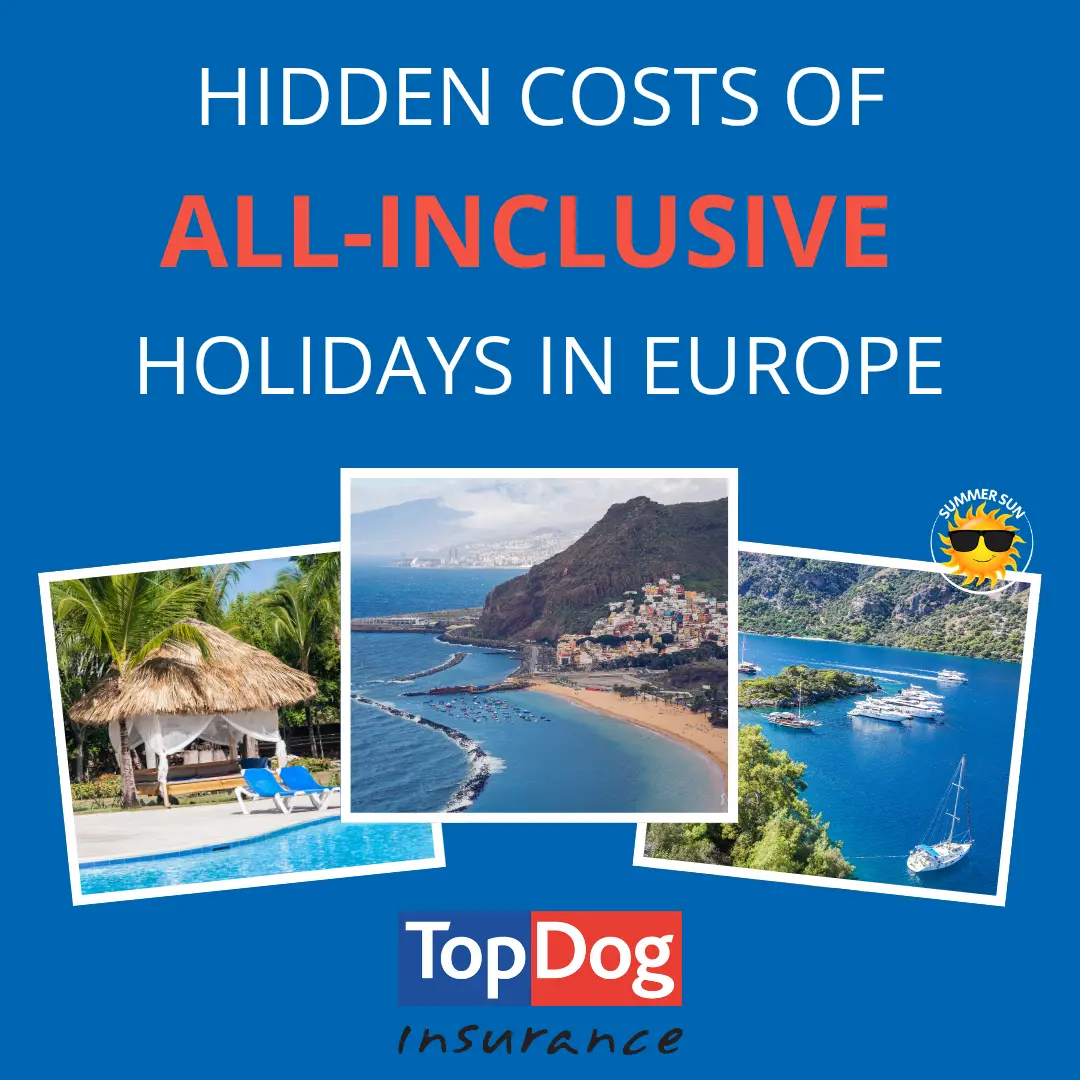Hidden Costs of All-Inclusive Holidays in Europe
July 02, 2025

Hidden costs of all-inclusive holidays are often overlooked, yet they can significantly impact your budget. All-inclusive holidays sound ideal on paper: one price covers your flights, hotel, food, drinks, entertainment, and more. What’s not to love? For many travellers, especially families and groups, it seems like the most cost-effective and stress-free way to take a break. No need to carry your wallet around or worry about where to eat next—everything is sorted.
But while the term “all-inclusive” suggests everything is covered, the reality can be quite different. Many travellers are surprised by unexpected charges once they arrive, and those “extras” can quickly add up. From resort fees to hidden taxes, it’s important to know what you’re really paying for.
Whether you’re heading to Spain, Greece, Portugal, or Turkey this summer, here are some common hidden costs to watch out for, and practical tips to help you avoid unexpected expenses and get the most from your holiday.
1. Airport Transfers Aren’t Always Included
It’s easy to assume your all-inclusive package will cover the full journey, including the trip from the airport to your hotel. But many holiday packages only include accommodation, meals, and activities – leaving transfers out entirely.
Why it matters:
Arriving in an unfamiliar destination and scrambling to find a taxi or shuttle can be stressful – and expensive. Taxis from the airport can cost anywhere from €30 to over €100 depending on where you’re going.
What to do:
Before you book, check whether airport transfers are included. If they’re not, look into shuttle services or pre-booked private transfers, which are often cheaper than airport taxis. Alternatively, check local public transport routes for budget options.
2. Premium Drinks and À La Carte Dining
All-inclusive usually covers food and drink, but not everything on the menu. Many resorts limit the “included” offerings to buffet restaurants and house-brand drinks. Premium spirits, cocktails, or à la carte meals often come with an extra charge.
Why it matters:
If you’re hoping for cocktails by the pool or a nice dinner for two at a beachfront restaurant, those “extras” can quickly turn into a significant cost – especially over a week or more.
What to do:
Read the resort’s food and drink policy before you book. Look for phrases like “select brands only” or “limited à la carte access.” Some resorts offer upgraded packages for a small fee that unlock premium options – this can be more cost-effective if you plan to indulge.
3. Resort Fees and Local Tourist Taxes
Many European destinations charge tourist taxes or resort fees – often per person, per night. These charges are rarely included in the advertised price of your holiday and are typically collected at the hotel during check-in or check-out.
Why it matters:
In places like the Balearic Islands, Croatia, or Italy, tourist taxes can range from €1 to €4 per night per guest. Resort fees may also apply for towel rental, spa access, or use of gym facilities.
What to do:
Contact your hotel or travel agent in advance to confirm whether these charges apply. Budget for them accordingly and bring some local currency to cover any cash-only payments at the resort. For detailed tourist tax information, visit the European Commission’s travel and tourism page.
4. Excursions and Off-Resort Activities
That scenic boat tour, cultural excursion, or water sports session? Most aren’t included in your all-inclusive rate. While your hotel might offer fun activities onsite, anything beyond the resort will likely cost extra.
Why it matters:
Travellers can be caught off guard by the cost of day trips, boat tours, adventure activities, or cultural excursions. Even short outings can come with a hefty price tag.
What to do:
Set aside a budget for day trips or extra activities. Check local booking sites or apps for deals, which are often cheaper than booking through your hotel. You can also explore nearby towns and beaches independently to save money.
5. Wi-Fi, In-Room Safes, and Other “Extras”
Despite being a basic expectation these days, reliable Wi-Fi isn’t always part of the package. Some resorts still charge daily or hourly rates, especially in rooms. Similarly, in-room safes often come with a daily rental fee.
Why it matters:
While these fees may seem small on paper—€3 here, €5 there—they quickly add up, especially over a longer stay or with multiple guests.
What to do:
Check recent traveller reviews or the resort website to understand exactly what’s included. If Wi-Fi is essential, consider getting a portable hotspot or travel SIM card. For valuables, consider bringing a small lockable travel pouch as a backup if safe rental fees are high.
6. Tipping Expectations Can Add Up
Although you may think tipping isn’t necessary on an all-inclusive trip, the reality is different. Staff at all-inclusive resorts often rely on tips for income, especially in destinations where wages are low.
Why it matters:
If you’re tipping waitstaff, bartenders, housekeeping, and activity leaders daily, that can easily become €100+ over the course of a week.
What to do:
Check if the resort has a tipping policy, some include service charges in the price, others don’t. Either way, bring small denominations in local currency so you’re prepared without relying on ATMs or credit cards.
Top Tips for Getting the Most Out of Your All-Inclusive Holiday:
- Read the fine print: Look beyond the headline price – check what’s truly included in terms of meals, drinks, entertainment, and facilities.
- Download your resort’s app (If available): Many resorts have their own apps that include dining times, event calendars and details of what’s included. You can also try apps like ResortPass or TripAdvisor, which helps you access services, amenities and customer reviews during your stay.
- Budget for extras: Even if you’re not planning anything extravagant, build in some room for unexpected costs.
- Bring a refillable water bottle: Bottled water isn’t always free outside meal areas, and this helps reduce waste too.
- Check the kids’ club details: Not all child-focused entertainment is included. Some have age limits or extra fees for certain hours or activities.
- Use prepaid travel cards: These help you control spending while avoiding foreign exchange fees or interest charges.
While you’re planning your all-inclusive holiday, don’t overlook the importance of travel insurance. Even the most carefully planned trip can face unexpected hiccups—flight delays, lost luggage, illness, or needing to cancel at the last minute.
Having the right insurance in place gives you peace of mind that you’re protected from costs that your resort won’t cover. Whether you’re travelling as a couple, family, or solo, travel insurance is a key part of a safe and secure holiday.
Want to find out more about what our policies cover?Get a free quote today.
